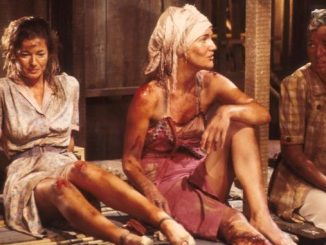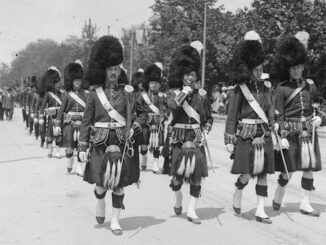In recent months, COVID-19 protests have been popping up around the city, but don’t be fooled into thinking that they are anything new. After all, even back in the 1910s, 1920s, and 1930s, there were a wide range of things that Torontonians decided to protest about, with some being a little darker than others. So today, we’ll be diving into the archives to give you the inside scoop on some of the most fascinating of them all!
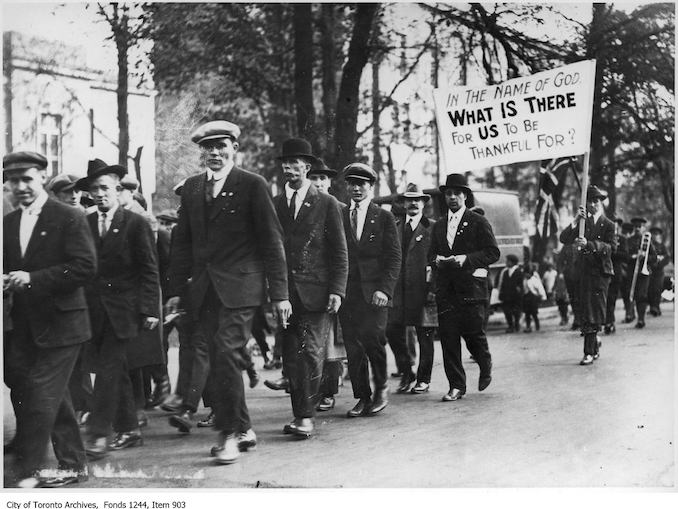
World War One was one of the bloodiest conflicts in history, and thus the Canadian soldiers who survived it hoped to return to a prosperous country. However, the truth of the matter was that even in the City of Toronto, the economy had all but stalled after the War. You see, while the conflict had provided plenty of factory jobs to support the troops in Europe, once the fighting was over there wasn’t much need to create ammunition, firearms, and uniforms. This led to massive layoffs and an acute shortage of jobs for returning soldiers, and due to the lack of support they received from the government, many veterans took to the streets to protest the poor economic conditions.
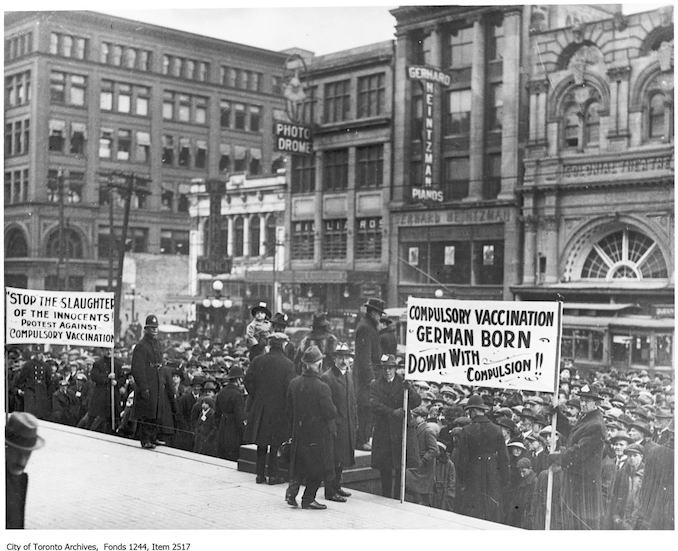
Smallpox was an absolutely devastating disease, and thus when an outbreak of the virus broke out in Toronto in November of 1919, government officials ordered a mass vaccination of all schoolchildren and public servants. Yet, the response by many was similar to what has been seen with the COVID-19 pandemic, as many did not support compulsory vaccination. The reasoning behind the protestors’ criticisms are also similar to what we see today, as they argued that compulsory vaccination would both take away personal liberties and potentially injure or kill those who received the vaccine. Interestingly enough, the protests were so widespread that City Council never ended up passing the resolution, and by February of 1920 the epidemic had run its course. However, the end result of the incident was the infection of 2,864 people and the death of 11.
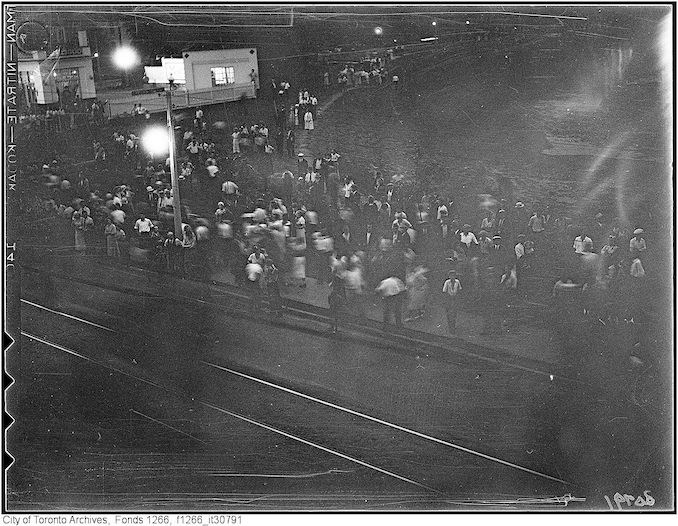
While swastikas and fascism are often associated with the German Nazi Party of decades past, they actually had a much stronger presence in Toronto than you may think. You see, at the time Toronto was far less diverse than it was today, and in response to the growing Jewish population some Anglo-Canadians began to form Swastika Clubs in order to intimidate their Jewish neighbours. While these often resulted in little more than complaints and harsh words, on August 16th of 1933 tensions flared at a baseball game at Christie Pitts. That’s because at the end of a quarter final game between Harbord Playground, which was predominantly Jewish, and St. Peter’s, which was sponsored by a church at Bathurst and Bloor streets, a group of Pit Gang members displayed a blanket with a large swastika painted on it. It didn’t take long for the Jewish boys and men in attendance to rush to the blanket to destroy it, and soon a massive brawl ensued in which the Jewish and Italian immigrants in attendance began to fight those who sided with the fascists. And while no one died in the violence, the incident really exposed the xenophobic attitudes held by many Torontonians at the time!
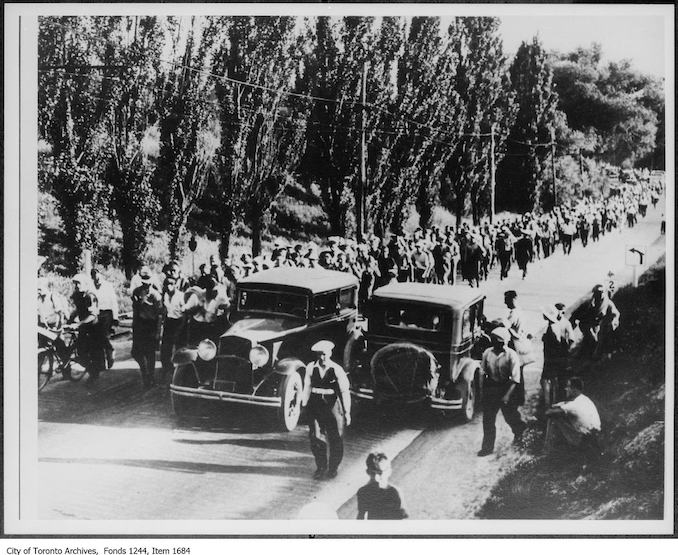
While the Recession of 2008 may have been a terrible financial downfall, the Great Depression of the 1920s and 30s was arguably much worse! Leading to mass unemployment across the country, the government scrambled to increase economic activity, and at the time their solution was to create labour camps for young working men. These camps would pay $0.20 per hour for a 44-hour work week, and the men involved were tasked with building roads, railways, and other public infrastructure. However, the conditions at these camps were quite poor, and soon men from around the country began a journey to Ottawa to demand better wages and working conditions. While most came from the West Coast, some Torontonians even began to make the trek, however the entire movement was soon cut short after a large riot occurred in Regina, Saskatchewan, on June 26th of that year. Therefore, while none of the protestors ever made it to Ottawa, the federal government still instated some of their requested reforms, as they did not want a similar incident to occur once more!

